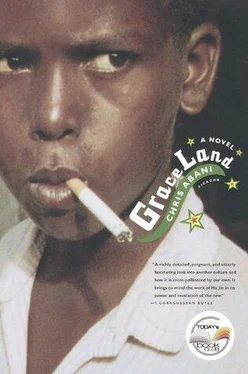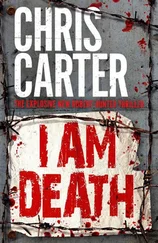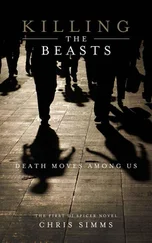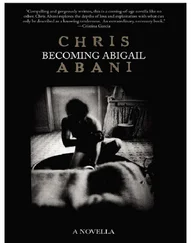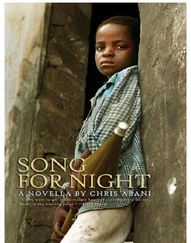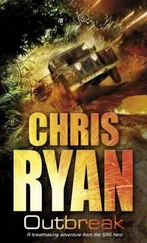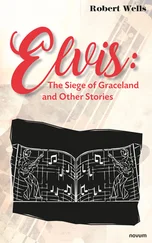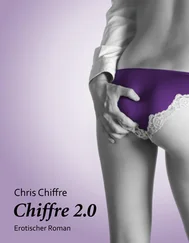“It is time to cut your apron strings,” he said to Elvis. “Dis is about being a man. No women allowed.”
“Easy, Sunday,” Joseph said.
“Easy what? Dis is why he has to learn early how to be a man, you know?”
“I know, but easy.”
Elvis stood still throughout the exchange as Joseph continued to paint.
“Eh, Joseph, I have some White Horse whiskey, let me bring it?”
“You need to ask?” Joseph replied with a chuckle.
Sunday got up and went in the house to fetch the whiskey from his private hoard in his bedroom. From the house came the quiet protest of Elvis Presley’s “Return to Sender” played at a low volume. As soon as Sunday was gone, Elvis started asking questions.
“What is happening?”
“Today, Elvis, you are going to kill your first eagle.”
“But I’m too little.”
“Don’t worry,” Uncle Joseph said, laughing.
“But why must I kill the eagle?”
“It is de first step into manhood for you. When you are older, de next step is to kill a goat, and den from dere we begin your manhood rites. But dis is de first step.”
Sunday returned shortly with the whiskey and two shot glasses. He sat down with a grunt and opened the bottle. Holding it over the ground, he poured a libation, while Joseph responded at appropriate moments. Joseph took the proffered shot glass and downed the whiskey in one gulp, snapping the empty glass out to his side, allowing any errant drops to water the ground. He grunted and grimaced.
“Ah, Sunday, dat na good brew dere. Pour me anoder.”
“Don’t finish my good whiskey. Dis stuff is not kaikai.”
When Joseph finished painting Elvis, he sent his son Godfrey out to summon the male elders. While he was gone, Joseph handed Elvis a small homemade bow with an arrow strung in it. On the end of the arrow, pierced through its side, was a chick. It was still alive and it chirped sadly. There was a line of blood from its beak that ran into the yellow down around its neck. The blood was beginning to harden and stiffen the feathers into a red necktie.
“It is alive,” Elvis said.
“Of course it is. You just shot it,” Joseph replied.
“I didn’t.”
“You did,” Sunday said.
“Is this an eagle chick?” Elvis asked.
Joseph laughed. “Elvis, you funny. No, it is chicken, eagle is too expensive.”
Elvis stood there holding the bow and arrow, with the helpless chick as far away from him as possible. He did not want the blood touching him. He tried not to make eye contact with the dying bird. When the old men assembled, Sunday passed the whiskey around and the men took swigs straight from the bottle.
“Do we have a kill?” they asked in Igbo, all speaking as one.
“Yes, we have a kill,” Joseph replied.
“Was it a good kill?” the old men asked.
“Yes,” Sunday answered.
“The father cannot speak,” the old men said.
“Yes,” Joseph said.
“Where is the kill?”
Joseph pointed and Elvis stepped forward. The old men smiled and looked at one another.
“In our day it was a real eagle.”
“Let’s just get on with it,” Sunday said.
The old men glowered at him. Then, one by one, they walked up to Elvis and blew chalk powder in his face. They anointed his head with oil and, taking the bow and arrow from him and passing it to Joseph, they spat in his palms and muttered a blessing for him. Then they walked out of the compound.
Innocent, at fifteen, was Elvis’s eldest cousin. Elvis knew that Innocent had been a boy soldier in the civil war that ended two years before and that when Innocent slept over at Elvis’s house, he woke up in the middle of the night, screaming. Oye told him that Innocent screamed because the ghosts of those he had killed in the war were tormenting him, and if he, Elvis, didn’t behave, Innocent’s ghosts would torment him too. Other than the war story, Innocent and Godfrey, who was thirteen, were virtually strangers to Elvis. He admired them from a distance with their towering Afros and platform shoes, but as teenagers they didn’t have much to do with him.
Innocent bent and lifted Elvis up onto his shoulders. He felt very grown-up sitting up there, seeing the world from that high. Uncle Joseph handed the bow back to Elvis and they followed the old men out of the compound, accompanied by the group of young men, who now joined the procession, singing.
They followed the old men up the road, singing the praises of Elvis as a great warrior and hunter. The road headed away from the square, toward the farms and ritual spaces. It was unpaved and lined by trees Elvis knew simply as bush mango trees. They grew in straight lines. He once asked Oye how come wild trees could grow in such a straight line.
“They don’t, laddie,” she said. “In tha olden days, criminals and murderers were buried alive, standing up. A flowering stake was driven through their heads and they became the trees. Tha’s why tha fruit is so sweet.”
She cackled at his horrified expression. Beatrice had intervened.
“Mama! He is only five.”
“Children are never too young to hear tha truth. You know why tha criminals were killed tha’ way? Redemption. In death they were given a chance to be useful, to feed fruit-bearing trees. Do you understand?”
Elvis shook his head.
“Don’t worry, someday you will.”
But Elvis couldn’t walk past the trees without feeling the ghosts of the criminals reaching out to him, and neither could he eat the tasty fruit. High up on Innocent’s shoulders, he felt the leaves brush his face like hungry fingers, and he was really glad when the old men turned off the road and into the bush. They soon came upon a huge iroko tree that served as the clan shrine. The old men stopped and, taking the bow and arrow from Elvis, approached the tree. They freed the chick, tying it upside down to a branch next to others that were in several stages of decay. They hung like grotesque ornaments on a Christmas tree. The old men plucked a tail feather from the bird and stuck it in Elvis’s hair. They cut the tree bark and, dipping their fingers in the sap, traced patterns on his face. And then it was over. Sunday picked Elvis up and held him close to the decaying birds. Elvis turned away from the smell.
“Don’t turn away from death. We must face it. We are men,” Sunday said.
Elvis turned to him, tears brimming.
“But it stinks.”
“So does life, boy. So does life,” Joseph said. “Come, Sunday, leave your son to join his mates. He is a man now. Come, we still have to finish dat whiskey.”
Sunday nodded. He looked at Elvis for a long moment before putting him down.
Turning to Innocent and Godfrey, he told them to watch over their cousin, and then he left with Joseph. The group of singing boys followed them, intent on joining in on any festivities. Innocent picked Elvis up and carried him on his shoulders as they walked back to the house. He stopped at a kiosk just outside the compound.
“Why are we stopping?” Godfrey asked.
“Ah Elvis done taste him first blood, so as a man, he must drink with men,” Innocent replied.
Ordering beers for himself and Godfrey, he opened up a cold bottle of Fanta for Elvis.
“How you dey?” Innocent asked him.
“I was afraid,” Elvis replied.
“Dat’s how dese things are. De trials of dis world things come as surprise, so you must have a warrior’s heart to withstand dem. Dat’s why your papa no tell you about today. You understand?” Innocent said.
Elvis shook his head and took a sip from his soda.
“Leave him. He is a child,” Godfrey said. “Dere is time for such talk later.”
Innocent nodded and took a swig of beer. Sitting on the counter in his grass skirt, drinking his Fanta and watching Godfrey and Innocent tease the girl behind the counter, Elvis felt like a man.
Читать дальше
